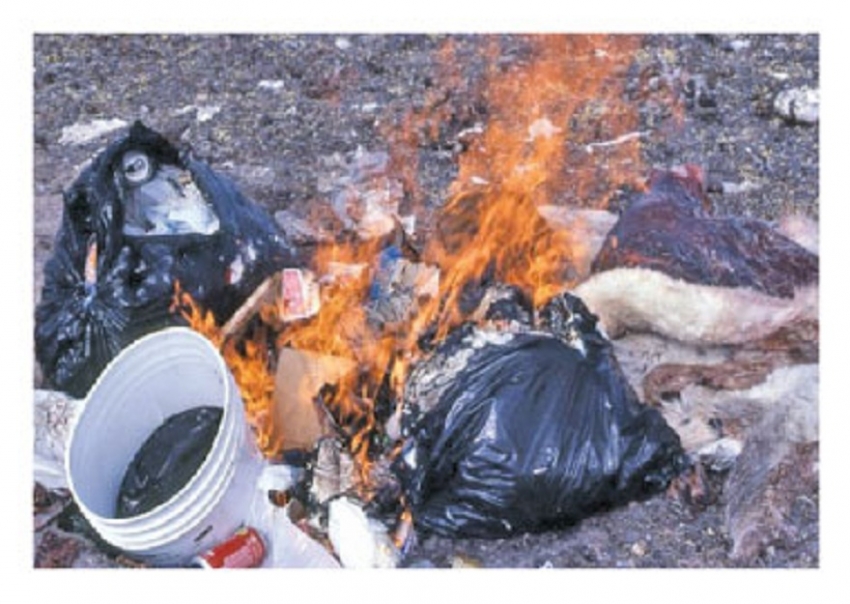The direct cost to the global economy is US$ 5 trillion every year in terms of health or welfare costs. According to the World Health Organization (WHO, 2019), 24 percent (1.4 million) of all stroke deaths, 25 percent (2.4 million) of all heart disease deaths, 43 percent (1.8 million) of all lung disease and lung cancer deaths are attributable to air pollution every year.
The polluted air contains high levels of dangerous particulate matter which enters the human bloodstream through the lungs and contributes to premature deaths. The WHO identified 30 most polluted cities in the world which have been located in the South Asian region. Therefore, WED - 2019 urges the world’s governments, industries, communities and individuals to come together to explore renewable energy and green technologies to improve the air quality and human health across the world.
With the introduction of the open economic policy in 1978, Sri Lanka has undergone rapid industrialisation and urbanisation resulting in more energy consumption and drastic increase in immortalisation (including motor vehicles,three-wheelers and motorbicycles).
The main source of ambient air pollution in Sri Lanka is vehicular emissions which contributes to over 30 percent of the total emissions in Colombo. Moreover, the burning of waste including plastic (Municipal waste contains 12 percent of plastic waste) contributes 11 percent of emission in the urban area in Sri Lanka. Although the burning of waste is more vulnerable to human health, this has become a common practice in Sri Lanka, since it is a quick and easy solution to reduce overflowing garbage.
I would like to draw policymakers’ attention to the fact that out of total waste generation amounting to approximately 6,400-7,000 MT/day (annual growth rate - 1.2 percent); local authorities only collect approximately 2,700 MT/day. The public must be made aware to dispose or handle the rest of the waste in an environmental friendly manner without the waste being dumped in surrounding water bodies, canals, roads and public places or being burnt in the open.
In addition, the combustion of fossil fuel and biomass and emission from power plants and industries are the other major contributors of air pollution, especially in the urban area of Sri Lanka, since it produces a large amount of carbon monoxide and multiple elemental carbon in the form of soot, sulphur dioxide and nitrogen dioxide. These elements even in small quantities can cause death depending on the type of pollutant, the amount of the pollutant exposed to, duration and frequency of exposure and associated toxicity of the specific pollutant.
This may lead to even chronic health effects varying from sub-clinical effects to premature mortality. Especially, children and elderly people are more vulnerable to various cardio-respiratory diseases. Further, those who have such diseases are sensitive to air pollutants.
Exposure to smoke can cause headaches, nausea, eye or nose irritation, cough and rashes which can increase the risk of developing heart disease, and lung and neurological diseases and they have been linked to heart attacks and some cancers. The toxic components inhaled through the smoke from burning plastic materials may cause hormonal imbalance in a newborn baby. Therefore, this is a time to review the current status of atmosphere, identifying data gaps, research needs and the next steps to move with expert suggestions and opinions. It has provided a clear message to think twice before discharging pollutants to our atmosphere. Moreover, the government must take immediate measure to reduce or manage emission from vehicles and the use of polythene or plastic and find alternative options for waste and biomass burning.
In addition, a cohesive strategy that encourages sustainable use of resources should be implemented towards sustainable consumption and production. Private companies should also be encouraged to invest wisely in a new ‘Green Production’, while developing a socially responsible status with its consumers. They can implement a code of practice pertaining to green growth and environmental protection to ensure that all their businesses processes abide by this practice.
Therefore, the government must introduce a tax concession methodology to encourage investors on green concepts. Civil society can play a significant role by independently monitoring all parties involved, raising awareness on resource consumption and supporting grassroots initiatives.
Further, the government should take immediate initiatives to extend an islandwide survey to identify the high-risk urban areas to provide a viable solution in the context of waste disposal and emission from vehicles along with a traffic reduction plan.
Finally, the people cannot stop breathing, but policymakers must pay their immediate attention to do something about the quality of air that we breathe and to stop this invisible killer to maintain sustainability in the country’s development activities.
World Environment Day (WED) is one of the most widely celebrated global days that inspires the public towards being environmental conscious. Hence, the United Nations (UN) seeks to focus the world’s attention on the environment and organises positive environmental action programmes and initiatives on June 5 every year, since 1972.This year’s theme is ‘Air Pollution’ and it encourages the world’s seven billion people to have a better atmosphere to breathe clean and quality air, since the poor air quality affects the productivity in terms of health issues such as stroke, heart disease, lung cancer, chronic obstructive pulmonary diseases and respiratory infections, including pneumonia.Air pollution kills approximately seven million people worldwide every year (four million deaths in the Asia-Pacific), since 90 out of 100, i.e., 6.3 billion people (92 percent) breathe air containing high levels of pollutants worldwide.




















